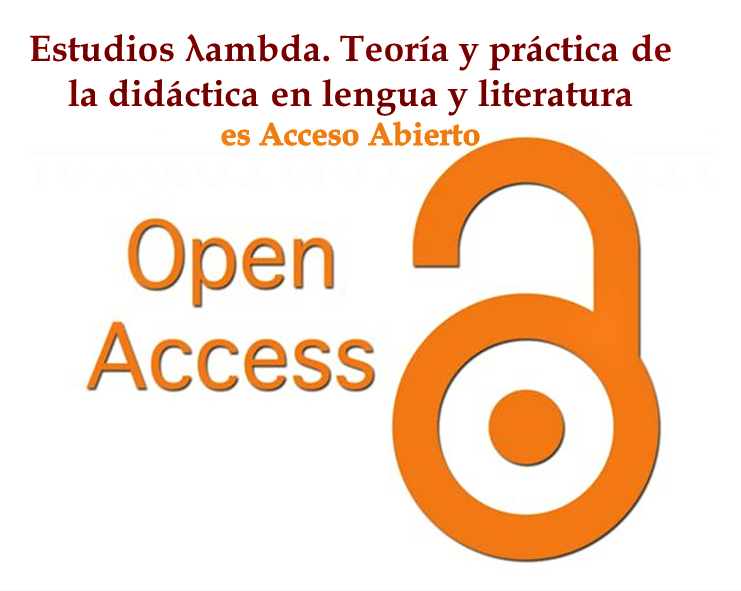LEI: Tareas de Lectura, Escritura e Investigación para el desarrollo de la escritura de tesis
LEI: Tareas de Lectura, Escritura e Investigación para el desarrollo de la escritura de tesis
DOI:
https://doi.org/10.36799/el.v4i2.100Keywords:
literacy tasks, academic writing, research tasks, conceptual integrationAbstract
Becoming research literate represents a challenge for thesis writing at tertiary level. One possible reason for this challenge results from the many interacting social processes involved in thesis writing, which may not be so evident for novice thesis writers. Frequently, the emphasis is given to writing; leaving aside the reading and research processes (Paltridge, Harbon, Hirsh, Shen, Stevenson, Phakiti and Woodrow, 2009, 22). Moreover, teachers who supervise students’ work may not be able to clearly describe how students become research literate as they read, write and carry out research. Following a qualitative tradition, this paper analyzes transcriptions from a focus group with students who were in the process of writing thesis for an undergraduate ELT program in Central Mexico. The main objectives of this research are (1) to identify the tasks that accompany undergraduate thesis writing and (2) to explore how these tasks work towards building the academic text. Preliminary results corroborate that reading and research tasks are inherent to developing an academic text; therefore Reading, Writing, Research tasks (R-W-R tasks). However, the results suggest that the interrelation of these social practices is not evident while writing a thesis. Tasks may be regarded in isolation by both thesis writers and supervisors, which may prevent a successful completion of the written text. This segmented view also constrains the development of research literacy. This paper may have implications to make thesis supervision and writing more explicit.
Downloads
References
Autrey, Meagan Kittle, and Michael Carter. “Unblocking occluded genres in graduate writing: thesis and dissertation support services at North Carolina State University.” Composition Forum, 31 (2015). 2 September 2019. https://files.eric.ed.gov/fulltext/EJ1061566.pdf
Barbour, Rosaline S. and Jenny Kitzinger. Developing focus group research: politics, theory and practice. London: SAGE publications, 1999. DOI: https://doi.org/10.4135/9781849208857
Barton, David, Hamilton, Mary. “La littératie: une pratique sociale”. Langage et société, 3(133) (2010): 45-62 DOI: https://doi.org/10.3917/ls.133.0045
Bazerman, Charles. “Systems of genre and the enactment of social intentions.” In Freedman, Aviva and Peter Medway (Eds.). Genre and the new rhetoric. London: Taylor and Francis, 1994.
Creswell, John. Qualitative Inquiry and Research Design: Choosing among Five Traditions. California: SAGE Publications, 1998.
Creswell, John. Educational research: Planning, conducting and evaluating quantitative and qualitative research. New Jersey: Merrill Prentice Hall, 2005.
De Silva Joyce, Helen, and Susan Feez. Exploring literacies, theory, research and practice. UK: Palgrave McMillan, 2016. DOI: https://doi.org/10.1057/9781137319036
Difabio De Anglat, Hilda. “Las funciones del tutor de la tesis doctoral en educación.” Revista Mexicana de Investigación Educativa. 16.50 (2011): 935-59. 2 September 2019. https://www.comie.org.mx/revista/v2018/rmie/index.php/nrmie/article/view/400
Dörnyei, Zoltán. Research methods in applied linguistics. Oxford: Oxford University Press, 2007.
González De La Torre, Yolanda, José Jiménez Mora, and Jorge Ignacio Rosas. “Prácticas lectoras de estudiantes universitarios con fines de escritura académica.” Revista Electrónica: Actualidades Investigativas en Educación. 16.1 (2016): 1-19. 2 September 2019. doi: http://dx.doi.org/10.15517/aie.v16i1.21971 DOI: https://doi.org/10.15517/aie.v16i1.21971
González Quintero, Elsa Fernanda, and Ruth Roux Rodríguez. “The use of peer feedback in the English as a foreign language classroom: A case study.” Sintagma. 5 (2007): 54-68. 2 September 2019. https://sites.google.com/site/sintagmauaemex/5_4abs
Itua, Imose, Margaret Coffey, David Merryweather, Lin Norton and Angela Foxcroft, “Exploring barriers and solutions to academic writing: perspectives from students, higher education and further education tutors.” Journal of Further and Higher Education. 38.3 (2014): 305-26. 2 September 2019. https://doi.org/10.1080/0309877X.2012.726966 DOI: https://doi.org/10.1080/0309877X.2012.726966
Kaplan-Weinger, Judith, and Char Ullman. Methods for the ethnography of communication. Language use in schools and communities. New York: Routledge, 2015. DOI: https://doi.org/10.4324/9780203123768
Lea, Mary R., and Brian V. Street. “Student writing in higher education: An academic literacies approach.” Studies in Higher Education 23.2 (1998): 157-72. 2 September 2019. https://doi.org/10.1080/03075079812331380364 DOI: https://doi.org/10.1080/03075079812331380364
Martin, James. “Analyzing genre: Functional parameters.” Genre and institutions: Social processes in the workplace and school. London: Cassell, 1997.
Paltridge, Brian, Lesley Harbon, David Hirsh, Huizhong Shen, Marie Stevenson, Aek Phakiti and Lindy Woodrow. Teaching academic writing: An introduction for teachers of second language writers. Michigan Teacher Training. Ann Arbor: University of Michigan Press, 2009. DOI: https://doi.org/10.3998/mpub.300562
Reid, Joy M. Teaching ESL writing. New Jersey: Prentice Hall, 1993.
Reyes-Cruz, María del Rosario, Lorgia Isamar Rueda de León-Barbosa, and Griselda Murrieta-Loyo. “Undergraduate pre-service efl teachers’ conceptions of research: A quantitative analysis.” Colombian Applied Linguistics Journal. 19.1 (2017): 67-83. 2 September 2019. doi: https://doi.org/10.14483/calj.v19n1.10534 DOI: https://doi.org/10.14483/calj.v19n1.10534
Trowler, Paul. Universities into the 21st century. Cultures and change in higher educaction. New York: Palgrave MacMillan, 2008. DOI: https://doi.org/10.1007/978-0-230-36511-7
Wolcott, Harry. Transforming qualitative data: description, analysis and interpretation. Thousand Oaks, CA: Sage, 1994.
Wyatt, Mark, and Carmen Pasamar Márquez. “Helping first-year undergraduates engage in language research.” Language Teaching Research. 20.2 (2016): 146-64. 2 September 2019. doi: https://doi.org/10.1177/1362168814562013 DOI: https://doi.org/10.1177/1362168814562013
Downloads
Published
How to Cite
Issue
Section
License

This work is licensed under a Creative Commons Attribution-NonCommercial-NoDerivatives 4.0 International License.
El autor o autores conservan en todo momento sus derechos morales y patrimoniales sobre la obra; la obra no se puede alterar, transformar o ampliar; siempre debe reconocerse la autoría del documento referido. Ninguna de las modalidades de los documentos publicados en Estudios λambda. Teoría y práctica de la didáctica en lengua y literatura tienen fines comerciales de naturaleza alguna.







